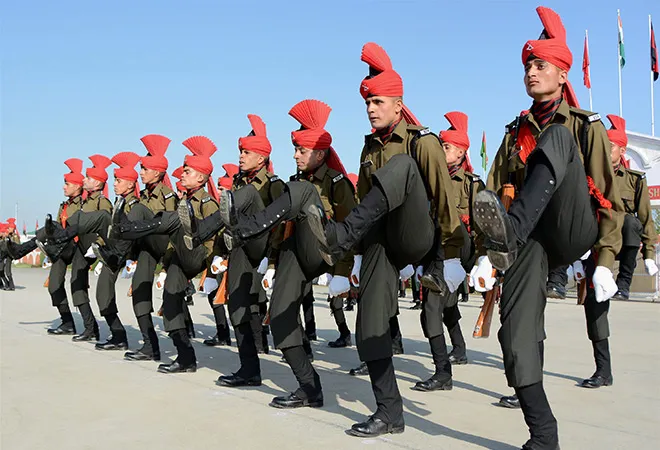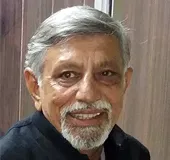
Since the announcement of employing the Army to construct three Foot Over Bridges (FOBs) in Mumbai, a discussion has been launched on whether the government decision was right or wrong. Opposition politicians, including Captain Amarinder Singh and Omar Abdullah amongst others, warned the government against employing the Army meaninglessly in roles earmarked for others. The Army chief in an interview with the media stated that he accepted this task as it would be image building for the forces, beyond the normal, ‘know your Army melas’, conducted regularly. If the decision were a political one, taken at an appropriate level, the chief would have to comply.
Veterans, who possess knowledge of a similar incident pre-1962, when the Army was employed for constructing accommodation in Ambala, ignoring their primary task of training and preparing for war, against the wishes of the Army chief, paid with immense loss of lives when suddenly moved for operations against the Chinese, have also criticised the government’s decisions. This argument may not hold much water as the Indian Army of 1962 and 2017 are vastly apart. It is presently well prepared and equipped to repel any misadventures.
The major comment of veterans on social media has been that the state is abdicating its responsibilities of tagging to task the agencies, which have inordinately failed to complete their projects in time. It is seeking an easier way out and this action may set a precedence, which would be difficult to reverse in the years ahead. It is an established fact that the Army has done more for nation building and national unity than any other organisation, but its employment has always been within bounds. Crossing it once, would set the cat amongst the pigeons.
The major comment of veterans on social media has been that the state is abdicating its responsibilities of tagging to task the agencies, which have inordinately failed to complete their projects in time.
There are some major questions, which the government needs to answer, for the satisfaction of the nation.
First, if a new and permanent FOB was sanctioned two years ago, why is it that the railways have still not finalised the tender? Who is responsible and why has no action been initiated? Is it that the railway minister has lost trust on his own organisation, despite it being packed with engineers, having its own engineering institutes and possessing expertise.
Second, while such tasks are within the purview of the Army, however as a rule, the Army is always the instrument of last resort. A counter argument could be that the Army is a national resource and hence can be tasked, if necessary. In recent times, the golden rule of employing the Army as an instrument of last resort is being ignored to the extent that other agencies have begun taking for granted that the Army will be there. Incidents of Haryana, Yoga Day (when the Army laid the mats) and cleaning garbage dumped by tourists in remote areas bear testimony to this. This is the beginning of a new trend.
Third, Army engineers are trained for constructing temporary structures during war, which as the battle progresses can be dismantled and resources re-employed elsewhere, not permanent ones. While this FOB is claimed to be a temporary structure, it would like all such cases remain permanently, hence would require additional resources and expertise, which the Army can muster. As a norm it is tasked in emergencies, such as bridges being washed away or the area likely to be flooded, when other agencies are either unable to muster resources or would take immense time. The temporary bailey bridge constructed in Enathu, Kerala, this February while the main bridge would take time to be repaired, the construction of overbridge during the Commonwealth Games in 2010 post the collapse of the main structure or the Pontoon bridge during the Sri Sri event are prime examples. Over the decades, it has also been constructing temporary Pontoon bridges for the ardh and khumb melas (massive religious gatherings) in Allahabad.
Fourth, the Army would be employing its stores meant for operations. History is testament to the fact that once constructed and deployed, the FOBs would remain in place for eternity. A permanent FOB may come up in the years ahead, but these would never be dismantled. The FOBs would be handed over to the railways, cost having been borne by the Army, with the material never returned. More than the cost are the raw materials employed on the site, which would add to the Army’s already existing shortfalls of bridging equipment. The Army would also continue battling CAG objections on the expenditure and payment for employment of the Army in tasks beyond its normal duties.
Fifth, for such a construction, troops would need to be redeployed from multiple locations, compelling them to sacrifice their normal tasks and training. Administrative bases would need to be established for dumping of stores and living of the personnel involved in the construction, for which land would always be in short supply, adding to the woes of those involved. Knowing the government and its policies, the entire labour would be Army personnel with no contribution in manpower from either the state or railways.
Finally, a major doubt is whether this entire exercise is being done to benefit the local population or for regaining lost political ground in the state. Logically, if it was aimed at providing succour to the local population, which faces the brunt daily while travelling on suburban trains, then the railway minister and the state chief minister should have first pulled up the railways and the local municipal corporation for the delay in tender and commencing construction, prior to tasking the Army.
If the action were to seek political mileage from the employment of the Army, then it would cause more damage than good. It would definitely enhance the Army’s image, as it would deliver the FOBs, in time and with quality, but would set a new precedence. It is also probable that the railways would desire its maintenance by the Army, since constructed by them, thus ensuring a permanent detachment remains in place, while they are absolved of any future responsibility, which would be an added task.
If the action were to seek political mileage from the employment of the Army, then it would cause more damage than good.
A major negative message which is being conveyed is that governments, both at the State and Centre, are incapable of pushing their own organisations to function at the desired pace. Hence, go slow and delay projects, and the government could seek other options. The opposition across the nation would exploit this incident to place the government and its agencies in poor light, while praising the Army.
Hence, despite all measures, politicisation of the Army is unavoidable. Simultaneously, it would open doors for other governments in the future, to employ the Army’s scarce and specific war stores for tasks, which remain the responsibility of other agencies. If that becomes the norm, then the nation would only witness failures from every department of the government and a shrinking in the Army’s resources.
The views expressed above belong to the author(s). ORF research and analyses now available on Telegram! Click here to access our curated content — blogs, longforms and interviews.




 PREV
PREV


